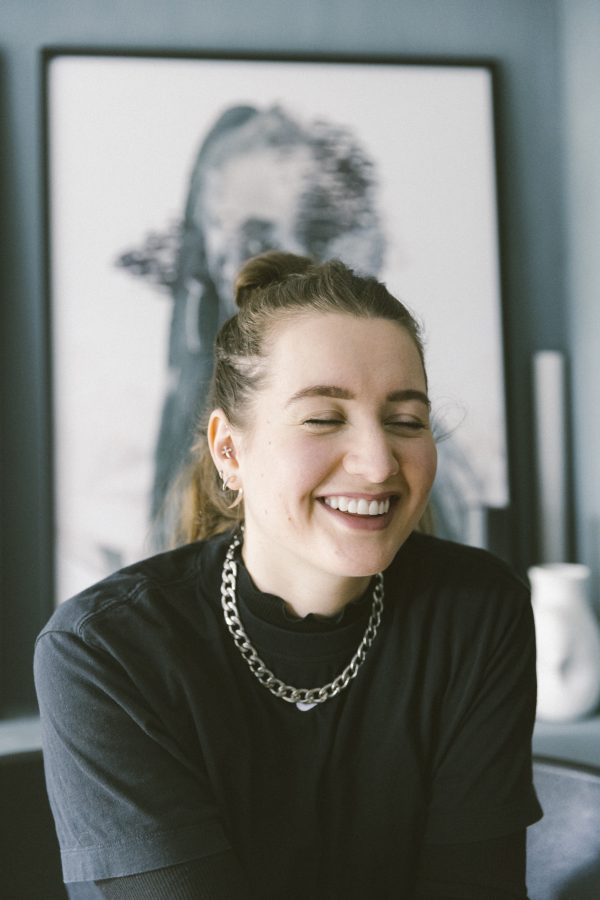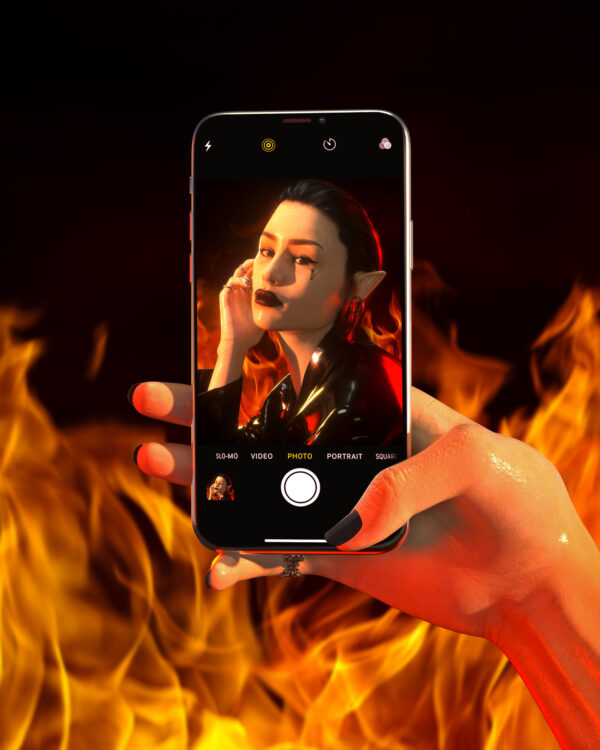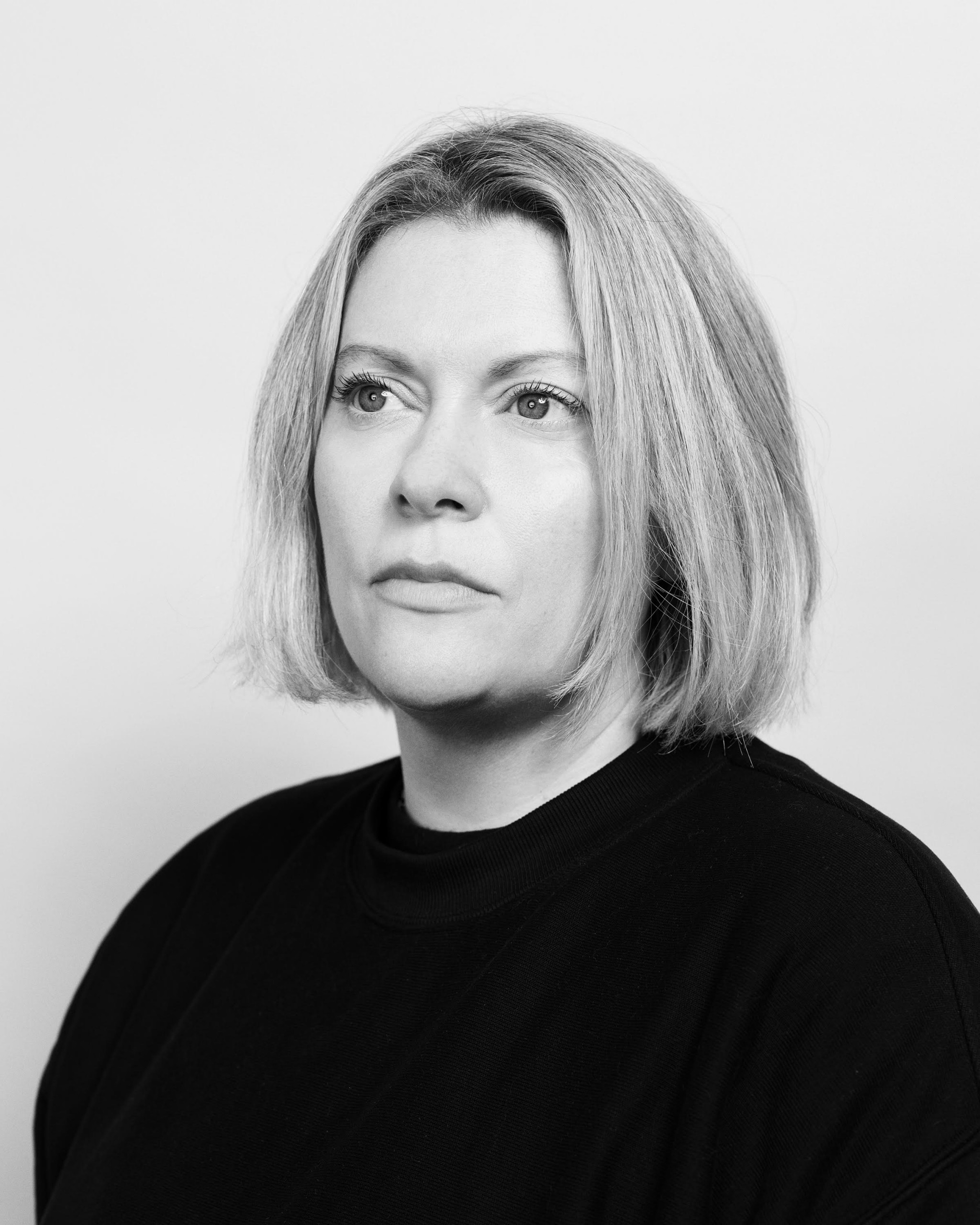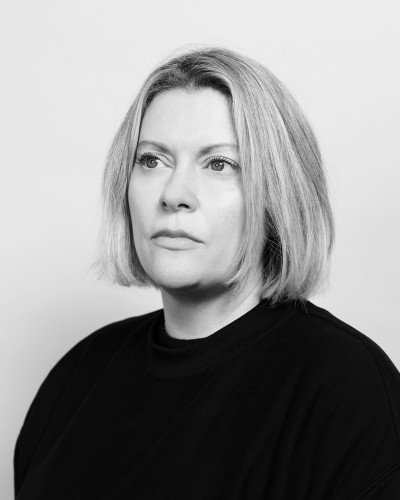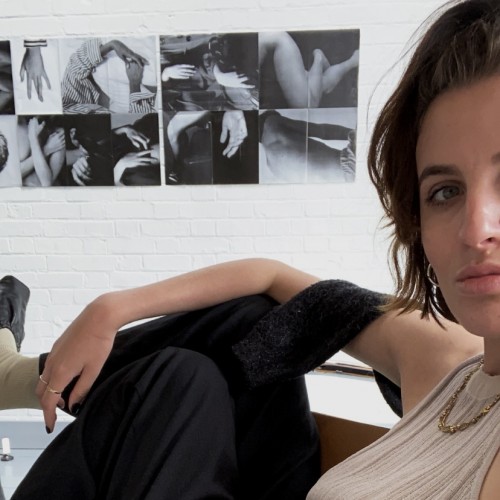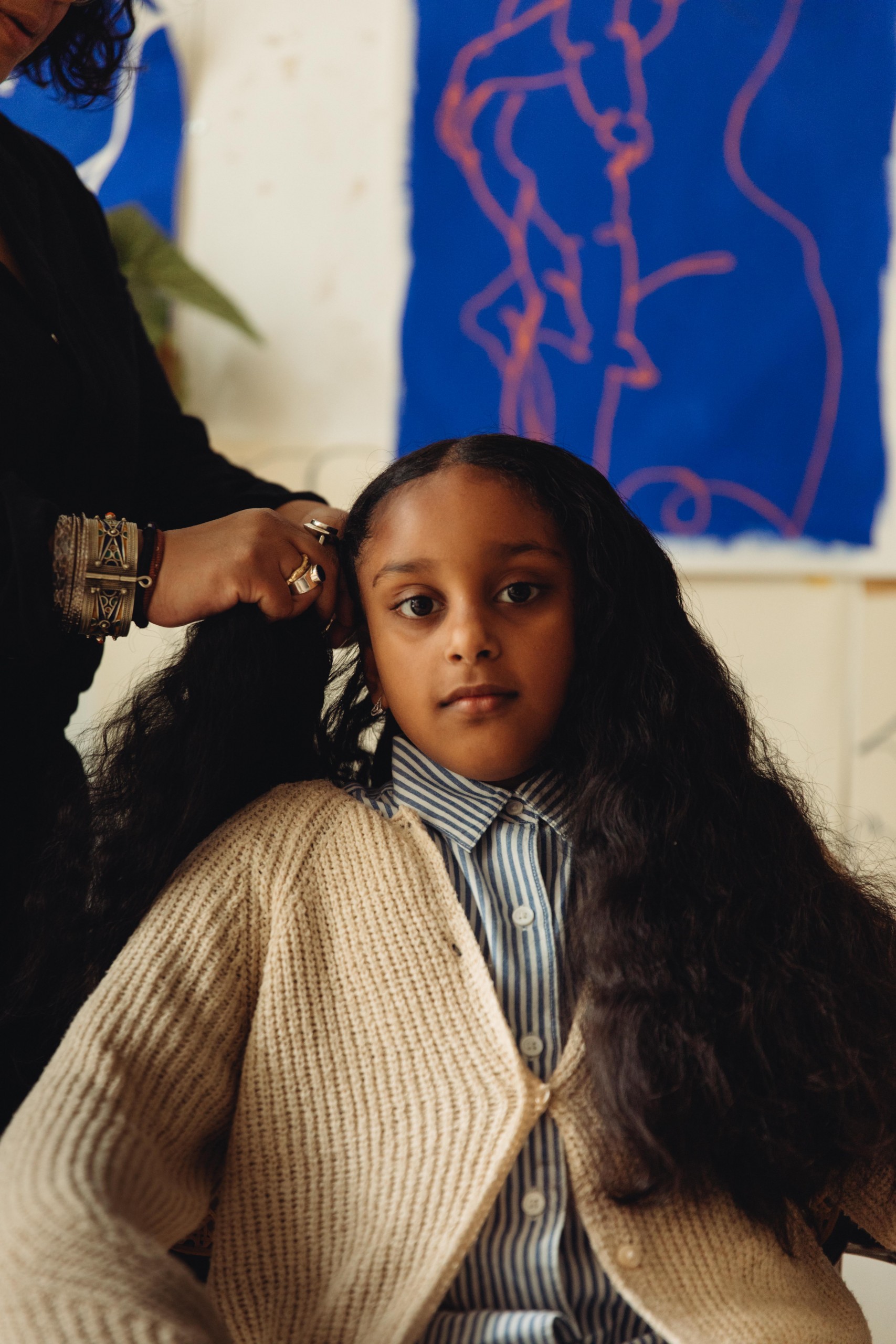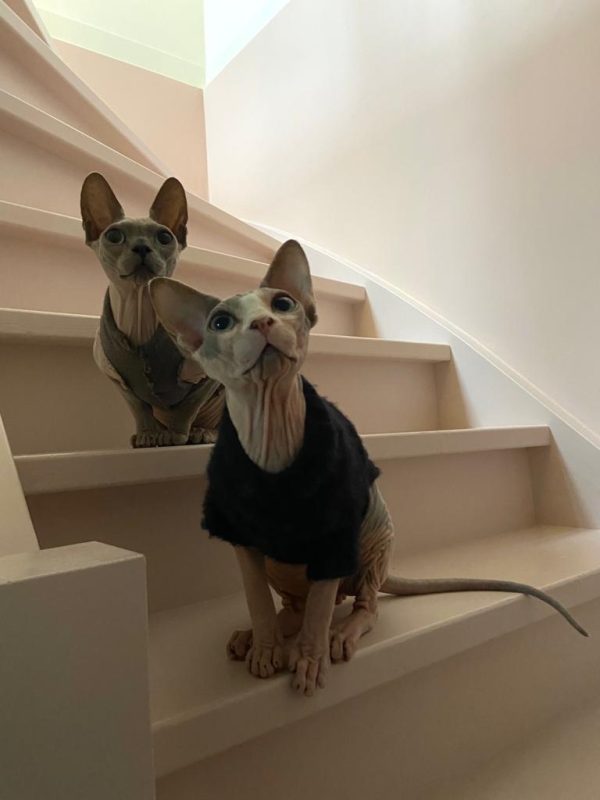Read Time 5 minutes
Art in isolation with Jess Cochrane
We caught up with Aussie artist Jess Cochrane at her home-studio during isolation to see how she‘s been staying inspired. Cochrane’s work questions the relationship between society, consumerism and pop culture. Her focus is on beauty and portraiture, illustrated through the application of paint over photographic images. The artworks reflect insecurity and perfectionism in today’s social media age; the way we display and disguise certain parts of ourselves.

Hey Jess, how are you feeling?
… I’m good, it’s been strange insofar as not being able to photograph anyone but myself, physically. I feel myself consuming and buying things to make me feel good. But I’ve been enjoying nicely curated moments in my home.
Since it’s morning now, I’m wondering what’s getting you out of bed every day?
COFFEE! For real though, not much. I love sleeping. Noodle [my cat] wakes me up. The small things that I enjoy; I love making a coffee in the morning, if it’s a good weather day, it’s the sunshine. Sitting in the sun and reading a book.
Are you a night owl or an early bird?
Lol neither. Weirdly, neither. I wake up late and go to bed early.
What song are you listening to in the studio at the moment?
Lady Lady by Masego, on repeat.
Tell us about your practise; we love how you use photography.
Thanks! Yeah, I use it as the base of my paintings, as a way to create compositions that hold many references to the way women have been viewed throughout the history of art and western culture. I use photography to make sense of the self and the female narrative.
Does it bother you when people describe your work as feminine?
I think until the last couple of years, my work was speaking very heavily about female beauty standards; questioning what feminine imagery looks like, visually. And why is this read/considered as weak or vulnerable or hyper sexualised …
I have shot men before, but never an overly-masculine cis guy. I’m always attracted to a person’s energy and people who are willing to be a part of my work are normally more-or-less in tune with mine.
Tell us the story behind this piece:

Every piece has an amazing story to tell. They all end up being really special experiences. For my first still life [pictured], I wanted to make something really visually pleasing.
It was the year that oranges and lemons and citrus fruits were super fucking popular [laughs]. I shot a close friend of mine, Lucy who has beautiful porcelain skin. A really classical look, almost Victorian – very different to your average gym-obsessed, tanned, Bondi girl in Sydney. I wanted to shoot her with classical elements from still life I’d seen in paintings. Or my take on that, anyway.
I don’t usually shoot still life, but I’m interested in how you can shoot portraits using objects that speak about a person. Lots of fruits are seen as feminine and sexualised in a way; a peach, halved grapefruit … floral elements too. They’re all drippy, oozy and, like, sensual …
Elements in the still life remind us of life and how fleeting it is.
What’s your favourite artwork by another artist?
I have so many favourites! Okay, okay, top three:
Strategy [1994] or Propped [1992] by Jenny Saville and Portrait of Olympia by Manet [1863].
What’s the most positive response you’ve ever had to one of your own pieces?
There have been several occasions where I’ve had someone message me and say ‘I got to see your work in real life and it’s made me cry’ or seeing people I’ve met at a show or that I’ve had the pleasure of painting getting really emotionally involved in the work.
As you know, at Darklight we’re really interested in the power of art as a positive force for mental health. Either making it, or appreciating it on a wall at home or in a gallery gives us a huge rush of endorphins and inspiration. How does your practise influence your mental health?
It allows me to visually process emotions and piece them together in a way that makes sense.
Do you have any advice for readers when it comes to dealing with anxiety and negative thoughts?
Mental health for me has always been connected to physicality. When I’m mean to myself, I’m mean to my body. I have a very mean side to my mental state that is 100% connected to my physical being and appearance. It’s taken a lot of growth to come out of that, but if I’m having a bad day or I’m too much in my head, I have to stop and think, have I been out on a walk today? Have I eaten well?
My body has been put through so much stress and strain trying to please other people or meet certain standards. I need to treat it.
END
All artworks courtesy of Jess Cochrane.
subscribe for the latest artist interviews,
historical heronies, or images that made me.
what are you in the mood for?

